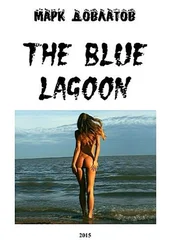These questions started me out on a path I had never before approached, or even conceived of, a dim awareness that began right away, but gradually, to form itself as an impression that she might need my care and protection. Perhaps I ought not to leave her alone. I had never really thought about how much I depended on her. A little girl depends on her mother without giving it a thought. I was surprised by my longing for her — a longing so strange I could scarcely believe it. How could there be such longing if I was insensible to it while I was far from her? She wrote me lengthy letters, to which I replied with two or three words, as if out of a sense of duty rather than genuine feeling. She pressed me to write to her, and I would chafe at her insistence, going weeks without writing at all. Why then, when I saw her — from the first moment I saw her — was I engulfed by this flood of yearning and tenderness, and the desire to cling to her and weep, and tell her it was all a mistake, a huge mistake? The word buzzed in my ear while we were at the airport, and I didn’t know what I meant by it: her breakup with my father? Her going back to France? My not having gone with her? I had no answer to any of this, and all that night I stayed awake turning the riddles over in my mind, but could come up with no satisfactory solutions; I might seem to find one, but none I could settle on for longer than a few minutes before returning once more to the inquiry.
What happened in Paris is that I encountered the truth of my feelings toward my mother and from there I automatically followed — in a way I didn’t comprehend at the time — the trajectory of my perception that she was in need of protection. Now it was for me to learn, gradually, how to open my arms to embrace and protect, to relax my guard and show compassion, to undertake the role of mother to my own mother. Why then did I not follow through? I forgot, or pretended to forget. Or such is life, that it takes us out of our feelings, or it withdraws those feelings and sets them far from our intentions.
Also in Paris that summer, I made my first step toward taking an interest in public events. In childhood, my father’s arrest was an entirely personal event, no more than that: a reasonless, incomprehensible removal to an obscure place. After my father’s release, politics were not, at home, a matter of daily discourse in which all three of us engaged at meals or in our evenings spent together as a family. Even the 1967 ‘setback’, which I followed to some extent, didn’t — as far as I can recall — penetrate the fabric of my emotional life until later, retrospectively. In June of 1967 I was beginning senior school, following the news of the war and the defeat in radio broadcasts, newspapers, and what I heard repeated, indirectly, allusively, on the tongues of others. But the event in all its tragic import did not permeate the inner life of a thirteen-year-old girl preoccupied with her relationship with her father, and his relationship with her mother, and with the upheavals of a family in a painful process of disintegration, the fear of a dissolution that seemed imminent.
(It was the night Nasser revealed, in the course of his speech announcing the defeat, his intention to step aside — a dark night. My father was following the speech and brushing away tears with the back of his hand. He went on brushing them and brushing them. My consternation at tears shed by my father was greater than anything occasioned by the nation’s president reporting a rout whose impact I would not absorb until years afterward — that is, I would absorb it more fully with the passage of years, as a gradual process beginning that day, and perhaps continuing even up to this moment.
The speech ends. My father weeps, wailing like a child. My mother all at once becomes hysterical, shouting, ‘I don’t understand! I absolutely do not understand! Why are you crying over him? Isn’t he the fascist officer, the brutal dictator who put the lot of you in prison for five years without the slightest grounds? Isn’t he… wasn’t he… didn’t you say…?’ Her words tumbled out in a rush, her voice pitched higher and higher. Suddenly my father said, ‘You must be blind!’ Then he walked out — left the house. After that she spoke not a word, and neither did I.)
When I got to Paris, I hadn’t the least idea what the country had witnessed in the previous weeks. But Paris that summer talked of nothing but those events. My mother, the neighbours, acquaintances — all were talking about them, while the newspapers revisited, analysed, and followed up on developments. As the boys and girls I got to know — who were of my own age, or older by a couple of years or so — strove to offer their own interpretations of what had happened, they found it entertaining to pass along the details of those weeks to a girl who had come from the faraway land of Egypt, ignorant of the fascinating things they knew.
My mother introduced me to Gérard and his family, who lived in the same building. The first time we met, Gérard volunteered to accompany me on a visit to any of the city’s landmarks I might care to see. I said I wanted to visit Notre Dame (it wasn’t that I was interested in church architecture, but I wanted to see the cathedral and its great bell, which the hunchback Quasimodo had rung in the novel by Hugo that I had loved, and that had made me cry). We agreed that he would take me there in two days’ time.
Gérard came by for me at ten in the morning; my mother had gone to work. We set off from the house toward Notre Dame. On the way to the Metro, and in the train, Gérard told me about the student demonstrations that had begun on 22 March in Nanterre. Eight students had stormed the dean’s office, to protest the arrest of six of their classmates for being active on a committee organised against the Vietnam War. It had been decided that these eight students would come before the disciplinary board a month later.
Gérard said, ‘On Friday the third of May, in the forecourt of the university, a group of student activists made a circle around the eight students who were to stand before the disciplinary board the following Monday. The crowd got bigger, and just kept growing. At four o’clock in the afternoon, riot police surrounded the university and began arresting students. As the news spread, even more students began showing up, and a battle ensued between them and the police. The closure of the university was announced — it’s only the second time in seven hundred years that the Sorbonne has been closed down; the first time was in 1940, when Paris was occupied by the Nazis.
‘Less than ten days after the decision to close the university, the President of the Republic was forced to make the decision to withdraw the police and reopen it. But things were not about to go back to the way they’d been before. The students took over the university. They opened up the gates, so that anyone who wanted to could join them in brainstorming and discussion sessions.
‘Between the closure and reopening of the university, lots of battles were waged, and workers’ strikes mounted and spread throughout France.’
‘Are you sure you want to go to Notre Dame?’
We changed direction.
Gérard took me to the Sorbonne University courtyard. ‘Here,’ he said, ‘with us standing in the courtyard, is where the demonstrations of Friday the third of May took place. From here, on Monday the sixth of May, the eight students marched, singing the National Anthem; they passed through the ring of policemen encircling the campus on their way to the disciplinary hearing. The demonstration heated up and spread into other parts of Paris. While the procession was making its way back into the Latin Quarter, the police attacked it. So the demonstrators began throwing stones they picked up from the street, overturning cars and erecting barricades. Heated clashes ensued, and these were repeated in the days that followed. It wasn’t only the students who were setting up barricades, but the residents of the neighbourhood as well; workers, housewives, and passersby all pitched in, supplying stones, planks of wood, rubbish bins, and iron bars. The battles raged all through the night, and house-raids went on all night, too. The police would raid a house and set upon the person they were after with their cudgels and beat him, then carry him out by force and throw him into one of their cars, then move on to the next address.’
Читать дальше











